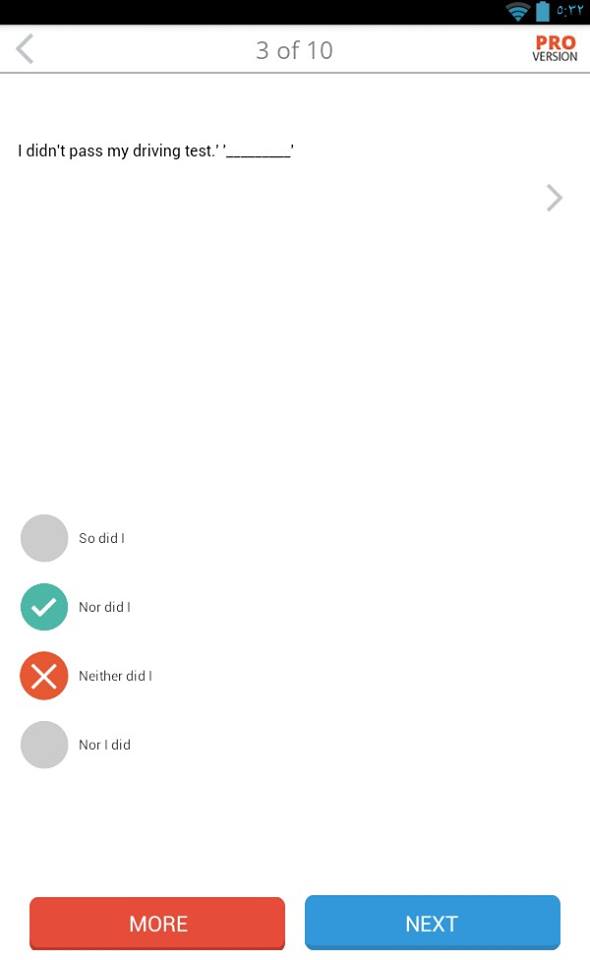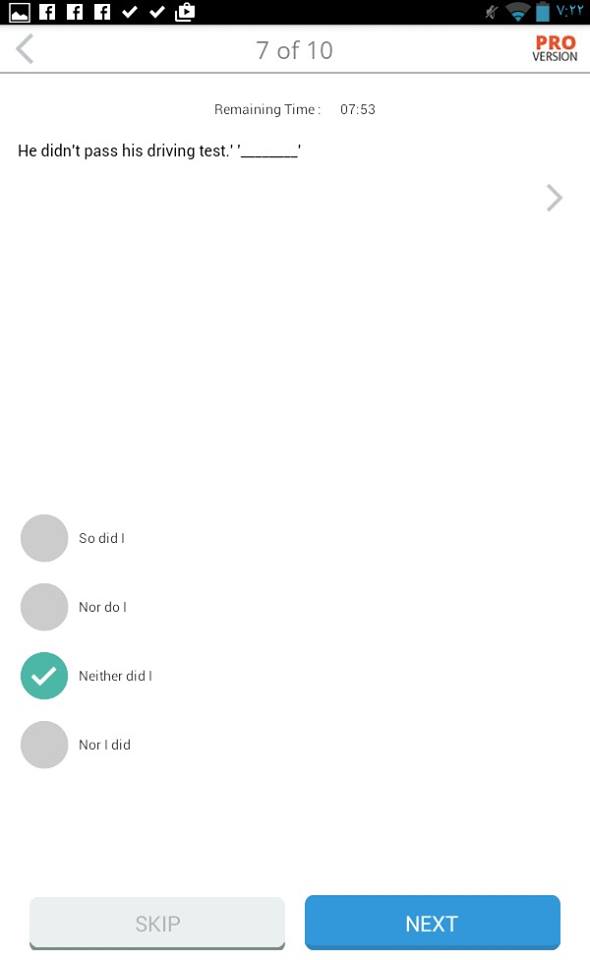A: John doesn't smoke
B: Neither do I
C: Nor do I
D: I don't either
E: Me neither
They're all correct, E is "nonstandard English", I wouldn't recommend writing it in a formal paper or in an exam, but it's fine in conversation.
A: John didn't pass the test
B: Neither did I
C: Nor did I
D: I didn't either
E: Me neither
All these answers are perfectly acceptable. We use neither and nor + auxiliary/modal verb + subject to mean ‘also not’:
A: John does nothing all day, he hardly works
B: Neither does Alice
C: Nor does Alice
We can use subject + auxiliary + not + either to mean ‘also not’,
D: Alice doesn't either
But the expressions me too and me neither are only used in very informal speech, and can only be used with first person singular. So ...
E: *Her neither
In this case E is ungrammatical.
To sum up: The app was wrong in marking neither did I as being incorrect. Both Nor did I and Neither did I are acceptable short answers.
Sources: Cambridge Dictionaries Online and BBC learning English
See also this question Is “Neither I you” Correct?
Here's another source: (Collins COBUILD Active English Grammar. HarperCollins, 2003)
"You use 'so,' 'neither,' or 'nor' with an auiliary, modal, or the main verb 'be.' The verb comes before the subject.
You were different then. -- So were you.
I don't normally drink at lunch. -- Neither do I.
I can't do it. -- Nor can I.
You can use 'not either' instead of 'neither,' in which case the verb comes after the subject.
He doesn't understand. -- We don't either


